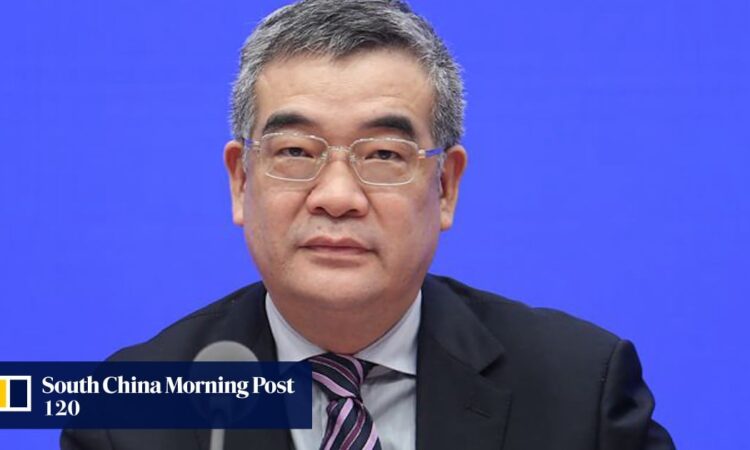China’s new forex party chief will oversee US$3 trillion in reserves while trying to stabilise the yuan

A veteran Chinese banker has been appointed party chief of the State Administration of Foreign Exchange (SAFE) – a vital role in helping to guard against the economic headwinds of US rate hikes while managing the world’s largest foreign exchange reserve.
In the latest personnel reshuffle among China’s key financial regulators, 55-year-old Zhu Hexin has replaced Pan Gongsheng, who still heads the country’s central bank. Zhu has thus become a key member of China’s financial regulatory team tasked with combating the raft of financial risks facing the world’s second-largest economy.
Zhu, the former head of state-owned investment and financial conglomerate Citic Group, has also been appointed as a member of the party committee of the central bank, according to a statement by SAFE, which reports to the central bank.
Lean, mean, soon unseen? China’s fintech, a small business godsend, now in the cross hairs
Lean, mean, soon unseen? China’s fintech, a small business godsend, now in the cross hairs
“Naming Zhu makes sense, as China is going through huge challenges,” said Alicia Garcia-Herrero, chief economist for Asia-Pacific at French investment bank Natixis. “His banking and market expertise and experience are needed at the current juncture, given the weakness of the [yuan] and the need for the kind of unorthodox intervention as we have already seen by having the banks intervene.”
Analysts also expect that Zhu’s down-to-Earth nature and his vast work portfolio will help him tackle some of China’s most pressing financial challenges.
Unlike his predecessors with strong academic backgrounds and decades of experience in central banking, Zhu’s first job was at a printing and dyeing factory in Nantong city, which is 100km (62 miles) north of Shanghai, after graduating from the Shanghai University of Finance and Economics with a major in economic information management systems.
He started his finance-related work in 1993 as an accountant at a city-level branch of the Bank of Communications, China’s fifth-largest lender, and went on to become its vice-president in 2014.
Then his political career started to take off. He was named vice-president of the state-owned Bank of China in 2015, and then served for two years as the deputy governor of southwest China’s Sichuan province.
Before joining Citic Group in 2020, he had been a vice-governor with the People’s Bank of China since 2018, overseeing such areas as the business credit system and investor protection.
Stronger supervision is needed in managing China’s foreign exchange market and its US$3 trillion in reserves while keeping the yuan exchange rate at a reasonable and balanced level, according to an official readout of the conference.
Beijing has reshuffled its financial regulatory regime this year, by spinning off some departments and freeing up the central bank to focus on monetary policy.
“Only a person [like Zhu] – who knows the in-and-outs of the banking sector and the market – can do the job [of fending off risks],” said Natixis’s Garcia-Herrero.






